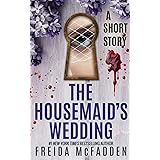David Fincher’s films are full of doubles, puzzles, and tantalizing glimpses of the director himself. As Adam Nayman writes in his new book about Fincher’s films, Mind Games, “Fincher imposes his presence through the actions and psychologies of thinly veiled proxies: Clockmakers and safecrackers; hackers and terrorists; detectives and serial killers.” These are films that are, like their director, obsessed with procedure and appearance—and intent on puncturing both.
These films are, perhaps because of their complexity or their (at least outward) coldness—or perhaps because of Fincher’s own past as a director of music videos and advertisements—misunderstood or even dismissed. In the past decade alone, Fincher’s The Social Network and, especially, Gone Girl have received radical reappraisals, while Zodiac has been seen by many as one of the best films of the twenty-first century. Mind Games is particularly valuable in its willingness to critically engage with much of Fincher’s less-appreciated output—from his work in advertising to films like Benjamin Button and The Girl With the Dragon Tattoo. But Nayman, the author of similar studies of the Coen brothers and Paul Thomas Anderson, also deepens the understanding of films by situating them in an oeuvre that has been obsessively looking at many of the same themes for decades.
You write that in Fight Club “the line between soulless conglomeration and dogmatic non-conformity is as thin and permeable as the tissue subdividing cerebral membranes (or the particle board of an IKEA shelving unit).” One of the things I imagine was so fun about writing this book is that there are so many ideas in Fincher’s films like this—but I also imagine that presented a challenge, especially given the highly visual, coffee-table format.
The guiding motif in the book is all these head-to-heads: The book is structured visually as conflicts between characters, and I do argue throughout the book that ’s essentially a dialectical filmmaker: His films are always about forces in collision. Usually, they’re pretty evenly matched.
I think that Fight Club is a self-divided movie. Once you get the punch line, and once it shows its hand, it’s the Fitzgerald thing: Can you hold two competing ideas in the same mind? Can you have the raging Che Guevera, Adbusters savant without the drone who’s repressing him? Can you have the franchise mentality of the space monkeys without the guy with the corporate experience to subconsciously exist in that world?
Even though Chuck Palahniuk is the source of the ideas, I think it’s Fincher’s ideas, his subconscious, his experience as an adman and a commercial guy whose commercials were always meant to be subversive—as if that’s possible—that makes that movie so agonizingly stalematey.
One of the things that’s so frustrating about that movie is the sense that instead of playing with the tension between those ideas, it’s trying to have it both ways.
I think it’s documented in Bryan Rafferty’s book Best. Movie Year. Ever, but while Fincher, Norton, and Pitt are shooting each other with Nerf guns and drinking energy drinks and hanging out, and you kinda go—there’s no satirical line there. You really are in that moment rather high on your own supply and convincing yourself that you’re doing something really subversive while you’re making a $60 million movie. The real residue of that is a kind of arrogance. When people say Fight Club is smug, they’re not wrong.
One of the great things you do in this book is properly situate—and take seriously—Fincher’s work in advertisements and music videos. What was it like revisiting that material?
I’m of the mind that brevity is where you get the sense of where an artist comes from. People have asked me, “What’s your favorite Fincher?” The macro answer is obviously Zodiac. On a micro-level, you could argue that his whole career is distillable to, and does not improve upon, the Smoking Fetus PSA. When you talk about having it a couple ways at once: You are instantly being Stanley Kubrick on a small ad commission because you are doing the Star Child—and it means more to have done 2001 in 1985 than now. 2001 had permeated the culture by then, but we’re not talking about Simpsons or Pixar doing it now.
So you’re doing Kubrick when you’re 25. You’re getting across a visceral idea that is still upsetting. You’re courting controversy and not as a music video director. This is a public service announcement that TV shows won’t broadcast. And it’s a self-portrait because he’s a punky shit heel little 25-year-old smoking baby. It’s socially conscious, but it’s also so semiotically adept.
I’m not going to say something dumb like, “It’s the best thing he ever did.” But on the other hand, how do you improve upon the succinctness of that? And that feeling that you really are biting the form that feeds you. You are biting the hand of advertisement. He comes back to that over and over again. The fundamental insecurity from Alien 3, where you had David Giler saying things like, “You’re a shoe salesman.” The films since, to varying and lesser degrees, are basically saying, “Fuck you. If I am, I’m also not.” To me, that’s his Rosebud. (laughs)
Fincher is the same age as Quentin Tarantino. He’s six years older than Paul Thomas Anderson. And yet he strikes me as younger than both of them—or at least much more contemporary. Do you have a similar sense?
I think hugely more contemporary. His metaphysics are an ’80s metaphysics. Anderson’s chasing the ’70s. Quentin is all over the place. The book is not particularly biographical because that’s not my remit, but one nugget I dug up that I like is that, whereas David Lynch—a very generationally different filmmaker—had his mind blown by The Wizard of Oz, and has said, basically, “I just remake The Wizard of Oz over and over again, to greater and lesser degrees,” Fincher was enraptured by a Making of The Wizard of Oz documentary. I love the idea that what got him excited as a kid was looking behind the curtain at a guy behind the curtain. He’s interested in unveiling authority, and he’s interested in illusion and showmanship—and P.R. and salesmanship. The Wizard of Oz is a big phony, basically. If you choose to see it as a social panorama as Oz, he’s interested in those wizard figures.
Similarly, I feel like Fincher has been much more engaged with both economic and, in particular, technological change than any of his contemporaries. Obviously, there’s The Social Network, but I just rewatched Gone Girl and was blown away by how prescient it was in a lot of ways.
Not that Gone Girl is some sort of obscure damsel in distress movie, but there are a lot of people who find it glib. There’s a piece of criticism that Ken Jones wrote about Gone Girl that you want to wave in the face of anyone who criticizes the film. He writes something like, “This is one of the only movies I’ve seen that is aware of the extent to which we are constantly hypermediating our personas.” It’s not something so banal as saying, “People are on their phones.” It’s this idea we know that every aspect of life is on display and the thing that we’re all the most scared of is becoming the main character on social media.
Gone Girl got that so early. Its specific references are a bit dated—Nancy Grace, early-2010s true crime cases that don’t have hold on the imagination anymore. But man, as a movie about self–stage managing an image of yourself and not wanting that image to get highjacked and not wanting your image to be controlled, it’s exceptionally acute. When he plugs his capital–Way We Live Now aesthetic that he has into good material—like in Social Network, as well—you feel like you’re seeing the contemporary scrolling. It’s the cinema of doomscrolling.
There’s also a case that my favorite of Fincher’s films, Zodiac, also seems to be wrestling with a number of very contemporary ideas, despite being set in the 1960s and 1970s.
Even without the specifics of that movie. The idea that you can make a movie about how technology brings you right to the edge of some kind of great release and then, basically, the more, you know, it drives you crazy, and you spend your life obsessively scrolling. I’ve just evacuated all the particulars. But the general thrust is dissatisfaction as a way of life—because dissatisfaction is inevitable and certainty is for suckers. I find it to be pretty profound.
There’s also a long-standing interest in not just making what you could, in broad strokes, call films interested in exploring our obsession with violence and “true crime” in particular but in really investigating what’s driving that interest.
What’s interesting is that when you make Seven in 1995, it is a movie that takes for granted that America has a sick obsession with serial-killer vogue. The basic underlying texture of the movie is that if this happened—and to be fair it could never happen—the media would be like “Cool!” I feel like Zodiac is the attempt to interrogate that. And then Mindhunter is a further refining of that interrogation, where he really wants to get into the psychology of law enforcement. Seven is about the psychology of law enforcement, insofar as it’s about one cop. In Mindhunter, he’s really interested in the institution.
Seven was the movie that made Fincher’s career, and it’s one that you argue he’s returned to in various ways ever since. It also is a film that set up a kind of critical divide in his work, between those praising his meta-investigations into human behaviors and those recoiling from his often cold aesthetic. I sometimes return to a line from a Dana Stevens review of Benjamin Button—which notes that Fincher was failing to transform from “the coldly dispassionate misanthropist of Seven, Fight Club, and Zodiac into a sentimental humanist.” Do you see an arc to his post-Seven filmography?
Seven is a movie that he’s always going to be reacting to our reaction against because it’s such a career-making film. I make an argument in the book that auteurism is a form of recidivism—like serial murder, right down to the signature. And also, nothing’s worse than a serial killer who can’t kill. You want each movie to have that lethal impact.
It’s hard to psychologize him. A lot of filmmakers not only don’t appreciate being psychologized, but they’re right to think that critics don’t know what they’re doing [when they try]. It’s more about trusting the tale, not the teller. But here the tale and the teller are pretty much on the same page! Fincher will tell pretty much anyone who will listen that he’s interested in procedure, he’s interested in repetition, he’s interested in human behavior, he’s interested in what makes some people wound tight and what makes some people snap.
That curiosity in behavior—when you’re looping back to what Dana Stevens said—where she’s saying, “He’s a misanthrope trying to be a sentimentalist”—she’s maybe right that this transformation is a bit awkward, and maybe she’s right that he wears one of those mantles better than the other. But what makes him function sometimes well in both registers, and makes me take him seriously as a dramatist and emotional cartographer, is that he’s interested in human behavior. The real cold-fish directors are the ones who are not interested in human behavior, or they think they can predict behavior, or that behavior is really boring. Fincher is not remotely like that. He thinks behaviors are fascinating as hell.
Note: This article have been indexed to our site. We do not claim legitimacy, ownership or copyright of any of the content above. To see the article at original source Click Here













